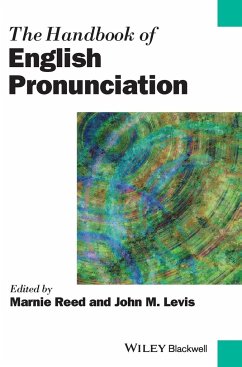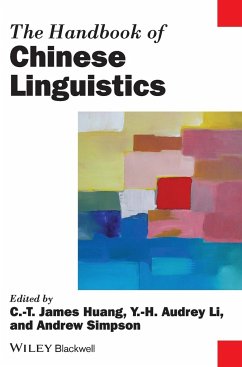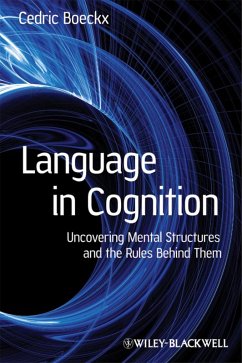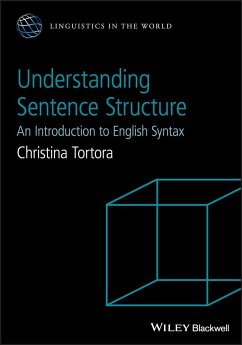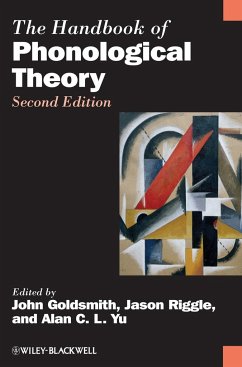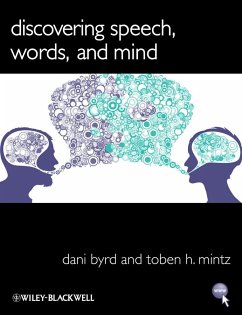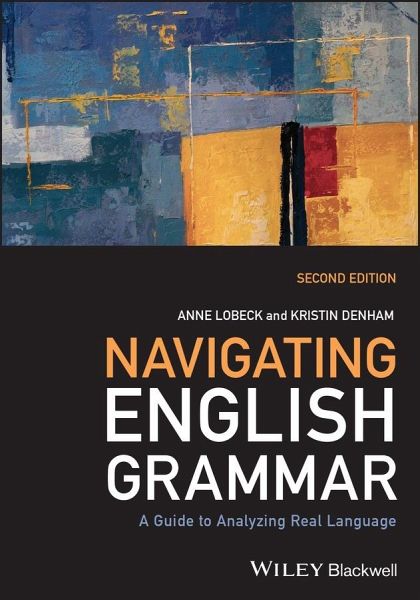
Navigating English Grammar
A Guide to Analyzing Real Language
Versandkostenfrei!
Versandfertig in 2-4 Wochen
38,99 €
inkl. MwSt.
Weitere Ausgaben:

PAYBACK Punkte
19 °P sammeln!
Navigating English Grammar presents an engaging and insightful introduction to the structure of English. Lobeck and Denham's inquiry-based approach encourages students to discover the fundamentals of English grammar by investigating their own intuitive knowledge of the language. This popular textbook equips students with a practical set of tools to analyze English in all its varieties and representations.By exploring how English varies from community to community, and how English has changed over time, students find that English, like any other language, is a dynamic system, and that attitudes...
Navigating English Grammar presents an engaging and insightful introduction to the structure of English. Lobeck and Denham's inquiry-based approach encourages students to discover the fundamentals of English grammar by investigating their own intuitive knowledge of the language. This popular textbook equips students with a practical set of tools to analyze English in all its varieties and representations.
By exploring how English varies from community to community, and how English has changed over time, students find that English, like any other language, is a dynamic system, and that attitudes about language are often based on social perceptions rather than linguistic fact. In this fully revised and updated second edition of Navigating English Grammar, student-friendly chapters with examples taken from diverse varieties of American English illustrate the grammatical concepts of a living language, whose "rules" are decided by language users instead of language authorities. Accessible to any reader regardless of background in language and linguistics, this important textbook features:
_ Entirely revised chapters on clauses, subordination and coordination, and modification
_ Basic phrase structure rules and tree diagrams to provide accessible graphic representations of language structure
_ Updated language examples drawn from varieties of American English that illustrate English as a dynamic system that changes over space and time
_ Revisions and updates to all chapters including new exercises, text excerpts, and boxes
_ A completely new capstone chapter that provides an overview of concepts and an extensive set of challenging practice exercises
Assuming no prior familiarity with the study of English grammar, Navigating English Grammar: A Guide to Analyzing Real Language, Second Edition is an excellent textbook for undergraduate courses in English grammar and related courses in English linguistics, second language acquisition,and language education programs. It is also a valuable resource for students studying the linguistics of other languages who want to improve their understanding of grammar.
By exploring how English varies from community to community, and how English has changed over time, students find that English, like any other language, is a dynamic system, and that attitudes about language are often based on social perceptions rather than linguistic fact. In this fully revised and updated second edition of Navigating English Grammar, student-friendly chapters with examples taken from diverse varieties of American English illustrate the grammatical concepts of a living language, whose "rules" are decided by language users instead of language authorities. Accessible to any reader regardless of background in language and linguistics, this important textbook features:
_ Entirely revised chapters on clauses, subordination and coordination, and modification
_ Basic phrase structure rules and tree diagrams to provide accessible graphic representations of language structure
_ Updated language examples drawn from varieties of American English that illustrate English as a dynamic system that changes over space and time
_ Revisions and updates to all chapters including new exercises, text excerpts, and boxes
_ A completely new capstone chapter that provides an overview of concepts and an extensive set of challenging practice exercises
Assuming no prior familiarity with the study of English grammar, Navigating English Grammar: A Guide to Analyzing Real Language, Second Edition is an excellent textbook for undergraduate courses in English grammar and related courses in English linguistics, second language acquisition,and language education programs. It is also a valuable resource for students studying the linguistics of other languages who want to improve their understanding of grammar.





